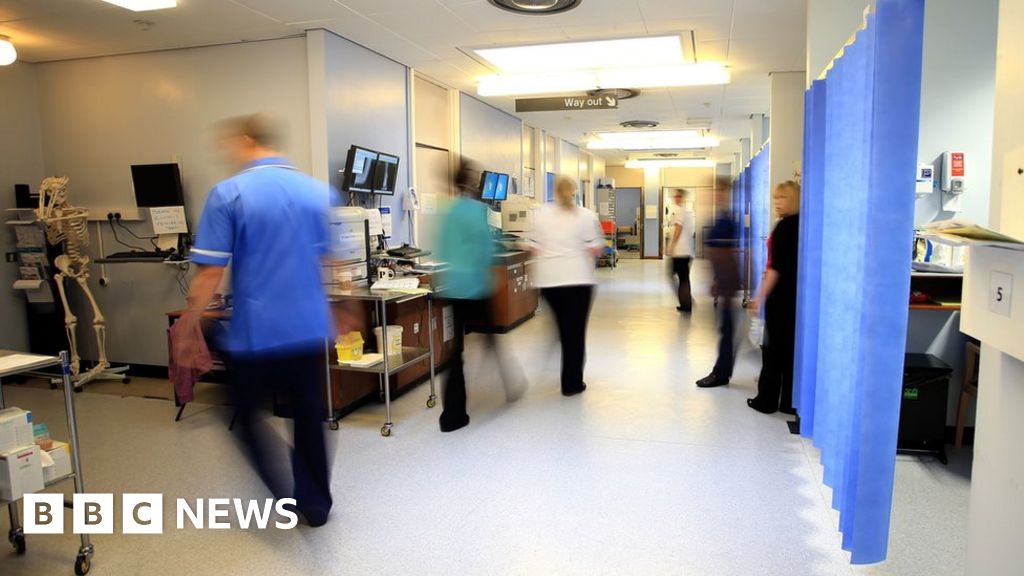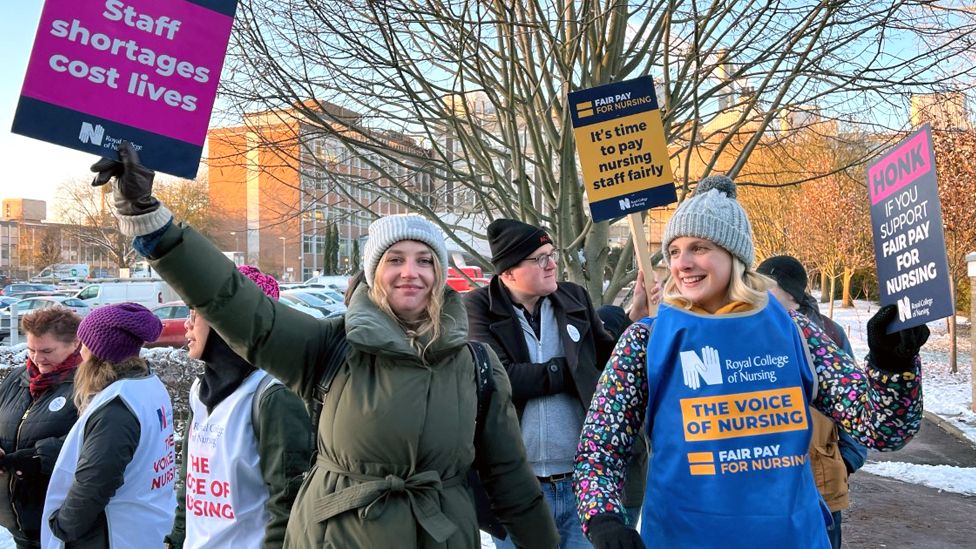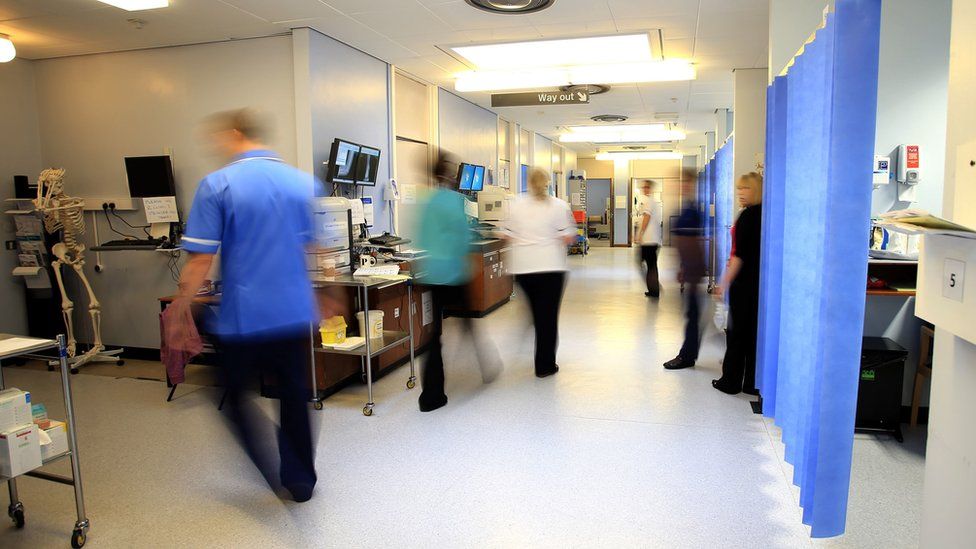
Hospitals should free up beds to prepare for “extensive disruption” caused by ambulance staff strikes in England, NHS bosses have urged.
They said patients would need to be safely discharged where possible ahead of a “very challenging” period.
Ambulance staff are to walk out on 21 and 28 December in a dispute over pay.
Cabinet Office minister Oliver Dowden said the strikes create “big risks” for the public, and urged union leaders to call them off.
The coordinated walkout in England and Wales by the three main ambulance unions – Unison, GMB and Unite – will affect non-life threatening calls only.
In a letter addressed to hospital bosses, NHS chiefs in England have called for patients who complete emergency medical care to be moved out of emergency departments.
This may involve the creation of “observation areas” and additional beds elsewhere in the hospital, Sir David Sloman, NHS England’s chief operating officer, wrote in the letter co-signed by national medical director Professor Sir Stephen Powis and chief nursing officer Dame Ruth May.
Some outpatient appointments could be cut back to allow senior medical staff to be redeployed to emergency departments. But NHS chiefs say “every effort” should be made to maintain urgent cancer diagnostics or cancer treatment, with rescheduling to be considered as a last resort.
Measures should be put in place to ensure that patients arriving at hospitals in ambulances are handed over to A&E in less than 15 minutes, they said.
Ambulance handover delays in England have hit a new high, according to recent NHS data. Last week, one in six patients waited for more than an hour to be passed on to A&E teams.
And NHS Providers’ interim chief executive Saffron Cordery said reducing handover delays would be “incredibly difficult to implement” because of factors including staff absences and rising flu admissions.
Ms Cordery said: “We understand why ambulance staff have voted for industrial action but it’s vital that the government and unions talk urgently to find a way to prevent this and further strikes from happening.”
The letter sent to NHS trusts and Integrated Care Boards said bosses should create and coordinate plans on how to handle strike days by 19 December.
Unison, Unite and GMB are taking action on 21 December. GMB union members will go on strike again on 28 December.
The walkouts in England and Wales will involve paramedics as well as control room staff and support workers.
Staff have been offered am average rise of 4.75%, with a guaranteed minimum of £1,400 – but the unions have asked for above-inflation pay rises.
Following an emergency Cobra meeting on Monday, the prime minister’s official spokesman said the number of ambulances available to attend calls would be reduced “significantly”.
Armed forces could be deployed to hospital trusts ahead of the strikes, Downing Street has confirmed.
The Police Federation has also suggested police officers may also be called upon to drive ambulances.
Mr Dowden told the Daily Telegraph: “The whole government effort is, of course, to try and minimise those impacts. But if this ambulance strike in particular goes ahead, there will be significant impacts and significant disruption.
“You can’t call a strike in this area and think that it’s not going to have an impact. And it will have an impact.”
He called on union leaders to call off strikes to give families and the military “a break”.
It comes after nurses took strike action on Thursday in parts of England, Wales and Northern Ireland in the dispute over pay.
Figures released by NHS trusts in England and Northern Ireland show at least 19,000 patients had their surgeries and appointments postponed because of strike.
Ministers had predicted that a larger number of around 70,000 appointments, procedures and surgeries would be lost.
Royal College of Nursing members are expected to walk out for a second time on 20 December


It is clear that NHS leaders are very concerned about the possible impact of the ambulance strikes planned for Wednesday 21 December and a more limited walkout a week later.
The letter to hospitals urging rapid preparations, including moving as many medically fit patients as possible out, is evidence of that – with references to a “very challenging period” and involving “extensive disruption”.
A senior NHS England official Sir Jim Mackey has said that action by ambulance teams represented a completely different order of magnitude of risk compared to nurses strikes. Tuesday’s second nurses strike will see thousands more appointments and procedures cancelled.
The letter from health leaders suggests there may have to be more postponements of appointments on Wednesday when ambulance staff go on strike in order to allow senior doctors to be redeployed to emergency departments. All this with no sign of ministers and unions being in any hurry to start pay talks.

-
-
18 hours ago
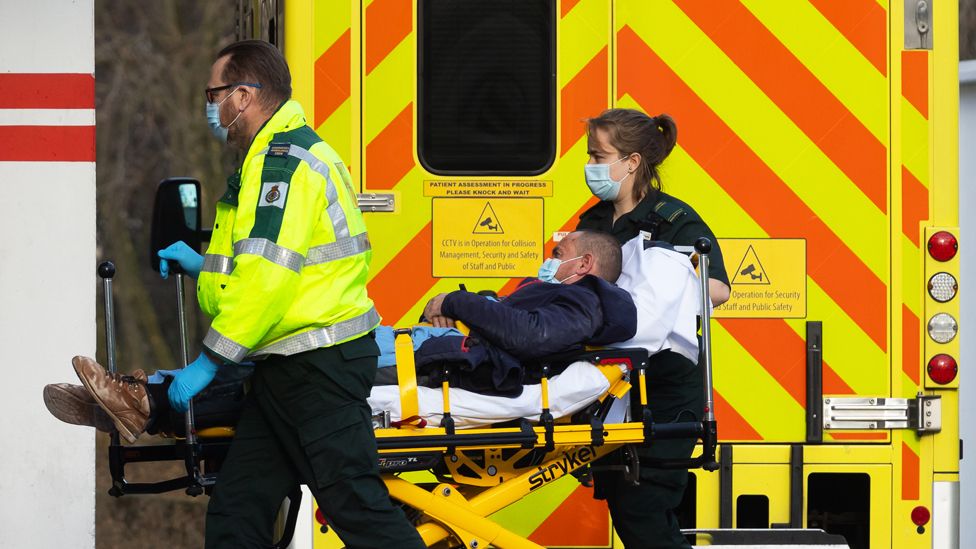
-
-
-
6 December
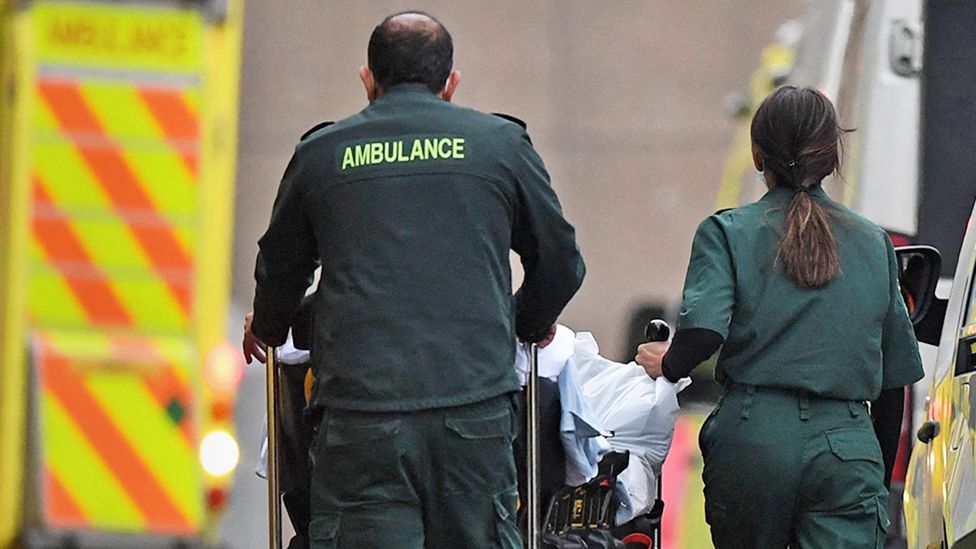
-
